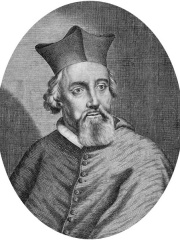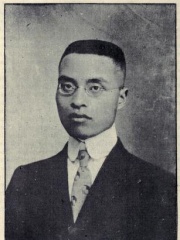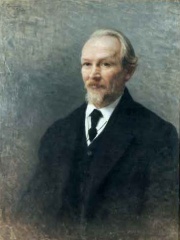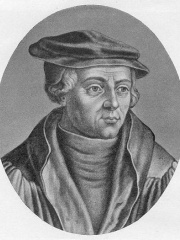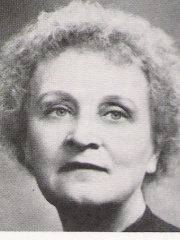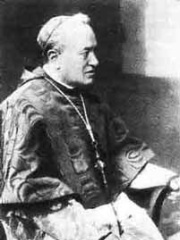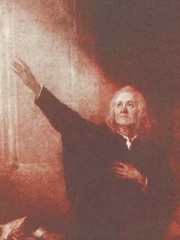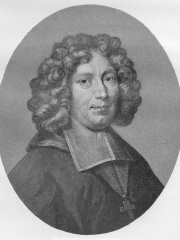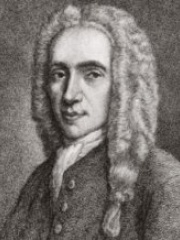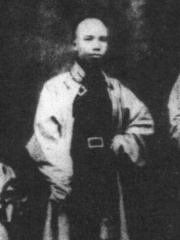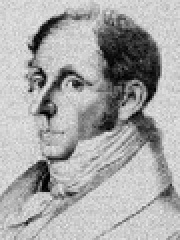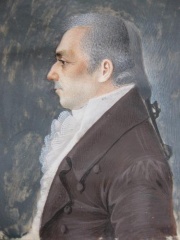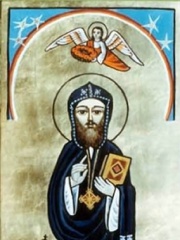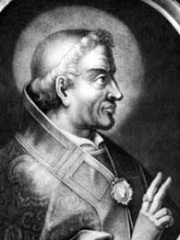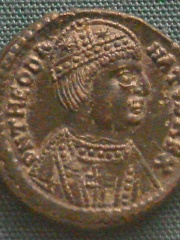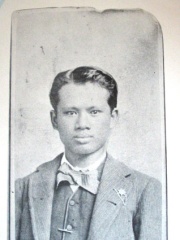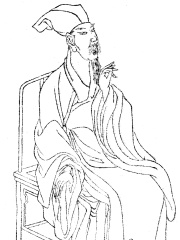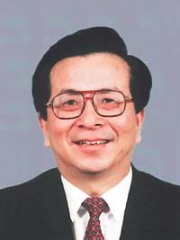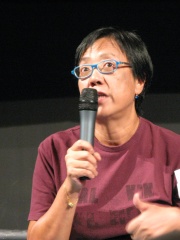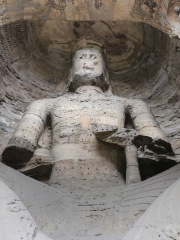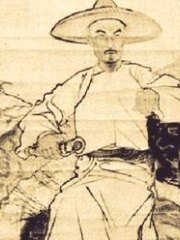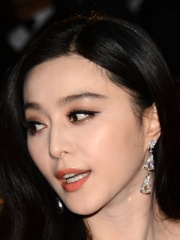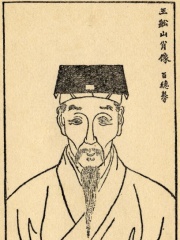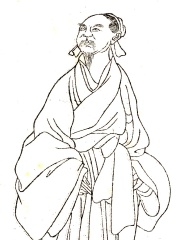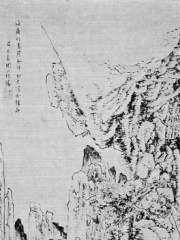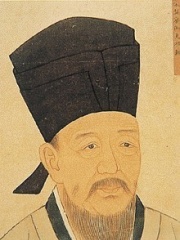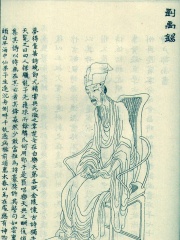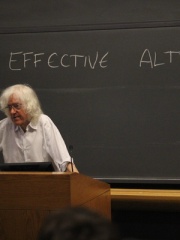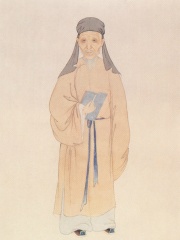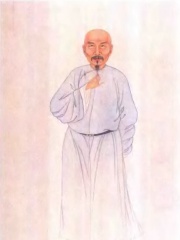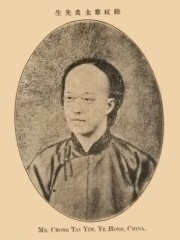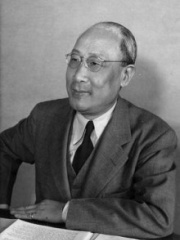Philosopher
Tao Hongjing
456 - 536
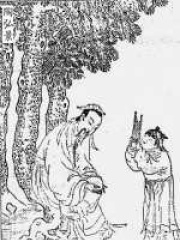
 Tao Hongjing
Tao Hongjing
Tao Hongjing (456–536), courtesy name Tongming, was a Chinese alchemist, astronomer, calligrapher, military general, musician, physician, and pharmacologist during the Northern and Southern dynasties period. A polymathic individual of many talents, he was best known as a founder of the Shangqing "Highest Clarity" School of Taoism and the compiler-editor of the basic Shangqing scriptures. Read more on Wikipedia
His biography is available in 16 different languages on Wikipedia (up from 15 in 2024). Tao Hongjing is the 905th most popular philosopher (down from 864th in 2024), the 711th most popular biography from China (down from 694th in 2019) and the 37th most popular Chinese Philosopher.
Memorability Metrics
Page views of Tao Hongjing by language
Among Philosophers
Among philosophers, Tao Hongjing ranks 905 out of 1,267. Before him are Juan Caramuel y Lobkowitz, Feng Youlan, Vasily Rozanov, Beatus Rhenanus, Helen Parkhurst, and Andrea Carlo Ferrari. After him are Ferenc Dávid, Pierre Daniel Huet, Firmin Abauzit, Tan Sitong, Jakob Friedrich Fries, and Gottlob Ernst Schulze.
Most Popular Philosophers in Wikipedia
Go to all RankingsJuan Caramuel y Lobkowitz
1606 - 1682
HPI: 60.38
Rank: 899
Feng Youlan
1895 - 1990
HPI: 60.38
Rank: 900
Vasily Rozanov
1856 - 1919
HPI: 60.37
Rank: 901
Beatus Rhenanus
1485 - 1547
HPI: 60.36
Rank: 902
Helen Parkhurst
1886 - 1973
HPI: 60.31
Rank: 903
Andrea Carlo Ferrari
1850 - 1921
HPI: 60.30
Rank: 904
Tao Hongjing
456 - 536
HPI: 60.28
Rank: 905
Ferenc Dávid
1510 - 1579
HPI: 60.28
Rank: 906
Pierre Daniel Huet
1630 - 1721
HPI: 60.25
Rank: 907
Firmin Abauzit
1679 - 1767
HPI: 60.25
Rank: 908
Tan Sitong
1865 - 1898
HPI: 60.19
Rank: 909
Jakob Friedrich Fries
1773 - 1843
HPI: 60.16
Rank: 910
Gottlob Ernst Schulze
1761 - 1833
HPI: 60.11
Rank: 911
Contemporaries
Among people born in 456, Tao Hongjing ranks 2. Before him is Severus of Antioch. Among people deceased in 536, Tao Hongjing ranks 5. Before him are Pope Agapetus I, Theodahad, Mundus, and Emperor Ankan.
Others Born in 456
Go to all RankingsSeverus of Antioch
RELIGIOUS FIGURE
456 - 538
HPI: 62.34
Rank: 1
Tao Hongjing
PHILOSOPHER
456 - 536
HPI: 60.28
Rank: 2
Others Deceased in 536
Go to all RankingsPope Agapetus I
RELIGIOUS FIGURE
490 - 536
HPI: 74.22
Rank: 1
Theodahad
POLITICIAN
480 - 536
HPI: 70.71
Rank: 2
Mundus
MILITARY PERSONNEL
450 - 536
HPI: 66.88
Rank: 3
Emperor Ankan
POLITICIAN
466 - 536
HPI: 66.77
Rank: 4
Tao Hongjing
PHILOSOPHER
456 - 536
HPI: 60.28
Rank: 5
In China
Among people born in China, Tao Hongjing ranks 711 out of 1,610. Before him are Li Na (1982), Charlie Soong (1861), Zeng Gong (1019), Feng Youlan (1895), Zeng Qinghong (1939), and Ann Hui (1947). After him are Emperor Mingyuan of Northern Wei (392), Lau Kar-leung (1934), Ma Jun (200), Shi Lang (1621), Wu Jingzi (1701), and Fan Bingbing (1981).
Others born in China
Go to all RankingsLi Na
TENNIS PLAYER
1982 - Present
HPI: 60.43
Rank: 705
Charlie Soong
POLITICIAN
1861 - 1918
HPI: 60.42
Rank: 706
Zeng Gong
POLITICIAN
1019 - 1083
HPI: 60.40
Rank: 707
Feng Youlan
PHILOSOPHER
1895 - 1990
HPI: 60.38
Rank: 708
Zeng Qinghong
POLITICIAN
1939 - Present
HPI: 60.36
Rank: 709
Ann Hui
FILM DIRECTOR
1947 - Present
HPI: 60.31
Rank: 710
Tao Hongjing
PHILOSOPHER
456 - 536
HPI: 60.28
Rank: 711
Emperor Mingyuan of Northern Wei
POLITICIAN
392 - 423
HPI: 60.27
Rank: 712
Lau Kar-leung
ACTOR
1934 - 2013
HPI: 60.25
Rank: 713
Ma Jun
ENGINEER
200 - 265
HPI: 60.24
Rank: 714
Shi Lang
POLITICIAN
1621 - 1696
HPI: 60.24
Rank: 715
Wu Jingzi
WRITER
1701 - 1754
HPI: 60.23
Rank: 716
Fan Bingbing
ACTOR
1981 - Present
HPI: 60.22
Rank: 717
Among Philosophers In China
Among philosophers born in China, Tao Hongjing ranks 37. Before him are Wang Fuzhi (1619), Zhang Zai (1020), Lie Yukou (-449), Cheng Hao (1032), Liu Yuxi (772), and Feng Youlan (1895). After him are Tan Sitong (1865), Derek Parfit (1942), Huang Zongxi (1610), Wei Yuan (1794), Zhang Binglin (1868), and P. C. Chang (1892).
Wang Fuzhi
1619 - 1692
HPI: 62.86
Rank: 31
Zhang Zai
1020 - 1077
HPI: 62.28
Rank: 32
Lie Yukou
449 BC - 500 BC
HPI: 61.94
Rank: 33
Cheng Hao
1032 - 1085
HPI: 61.07
Rank: 34
Liu Yuxi
772 - 842
HPI: 60.50
Rank: 35
Feng Youlan
1895 - 1990
HPI: 60.38
Rank: 36
Tao Hongjing
456 - 536
HPI: 60.28
Rank: 37
Tan Sitong
1865 - 1898
HPI: 60.19
Rank: 38
Derek Parfit
1942 - 2017
HPI: 59.52
Rank: 39
Huang Zongxi
1610 - 1695
HPI: 59.18
Rank: 40
Wei Yuan
1794 - 1857
HPI: 58.89
Rank: 41
Zhang Binglin
1868 - 1936
HPI: 58.58
Rank: 42
P. C. Chang
1892 - 1957
HPI: 55.60
Rank: 43
